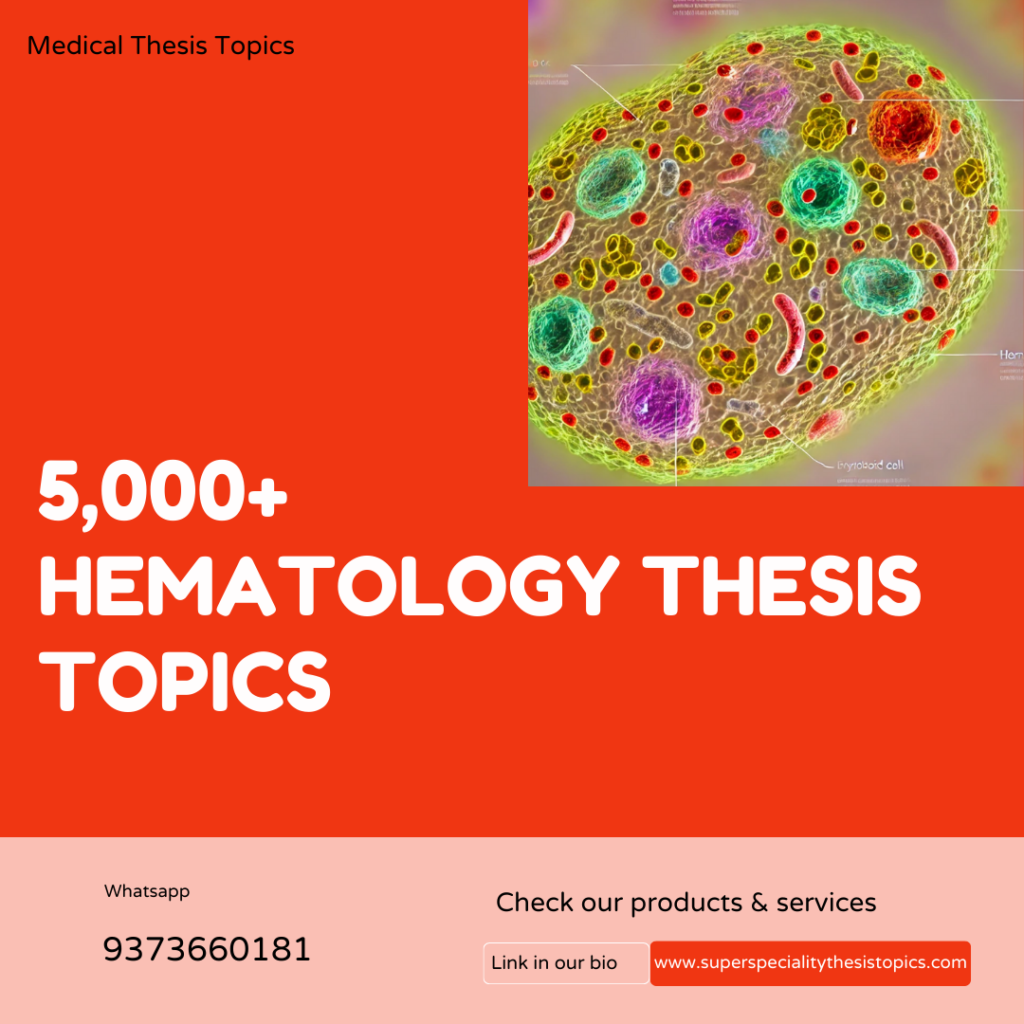An extensive collection of over 100,000 thesis topics is offered on the website, with approximately 10,000 topics per specialty, including a dedicated section for HEMATOLOGY thesis topics.
Numerous medical journals have been meticulously reviewed to compile a list of recent HEMATOLOGY Thesis topics, ensuring resident doctors have access to the latest trends and developments within the field.
Through personalized WhatsApp guidance, support is provided to resident doctors throughout the thesis process across all broad specialties and super-specialties including assistance to choose good HEMATOLOGY thesis topics.
Thesis Protocol and Synopsis: Assistance is given in developing a well-structured protocol and synopsis specifically tailored for HEMATOLOGY Thesis Topics .
Sample Size Determination: For studies on HEMATOLOGY thesis topics guidance is offered to determine the correct sample size using complex formulas and pilot studies, ensuring methodological precision.
Review of Literature: Comprehensive support is available for conducting a thorough literature review, establishing a strong foundation for HEMATOLOGY thesis topics.
Statistical Methods: Advice is provided on selecting and applying the most appropriate statistical methods to meet the objectives of selected HEMATOLOGY thesis topics.

© 2024 SS Topics